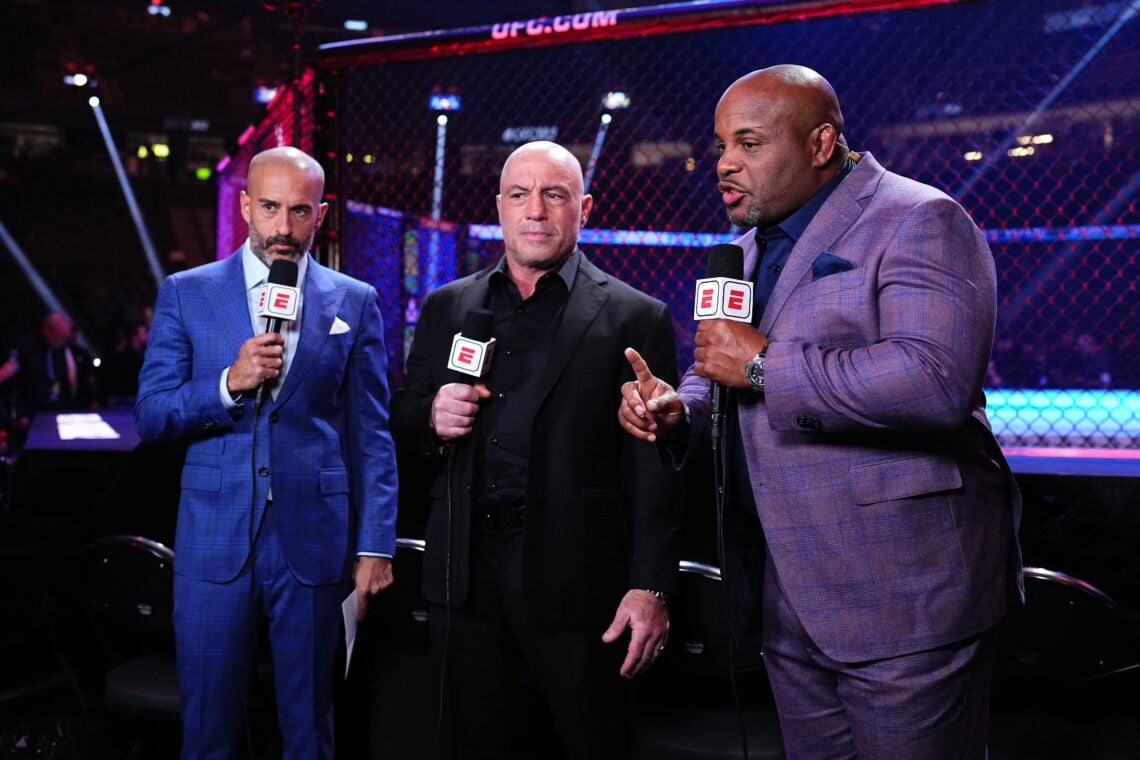A 2020 survey claimed that almost 40% of MMA fans often, whether successfully or not, choose to watch the biggest MMA PPV events through illegal pirating and streaming services – that was back when PPVs cost $64.99.
Now in 2024, fans must fork out a whopping $79.99 to watch PPV events, with last night’s quarterly financial call from TKO Group Holdings (the parent company of the UFC) making for some interesting reading.

TKO Group President on UFC PPV prices and illegal streaming
Back in 2019 when the UFC signed its enormous $1.5 billion broadcast deal with ESPN, PPVs cost $59.99, and over the past five years, we’ve seen a steady increase in prices: $64.99 by 2020, $69.99 by 2021, $74.99 by 2022, and finally to $79.99 at the time of writing.
Unfortunately, but equally understandably, this has led to an explosion in pirated and illegally streamed UFC content – and it turns out that TKO Group Holdings agrees that the two are intrinsically linked.
Last night, the media conglomerate held its quarterly financial call with President Mark Shapiro taking aim at the ‘aggressive’ and ever-frequent PPV price increases from ESPN, over the rise in illegal streaming.
“ESPN and Disney were very aggressive, if you will, on pricing the pay-per-views and they have full control over that, but they have control given what they’re paying us for those rights,” Shapiro stated, as reported via Forbes.
“Over the period of our partnership, they probably went a little quicker and a little higher than we would have liked… We voiced that to them, especially in this era of piracy where we’re seeing our piracy numbers really jacked up and we think that’s driven by them pricing it too high.”
One strategy that ESPN, in association with the UFC, has implemented in recent months to combat this spike in pirated PPV content has been to offer events at a lower price if you order the PPV in advance.
According to Shapiro, the company is seeing ‘success’ with that new approach, but how much success in terms of impact on pirated streaming remains unclear.
“They took the price down, if you will, in terms of offering a new marketing promotion where if you buy by a certain date, well in advanced of the numbered fights, you are going to get a discount and then the price of course increases once you pass that date. They’re seeing good success with that.”
Shapiro also stated that he believes the ‘market for PPV’ is slowly finding its middle ground, with ticket sales from live events also “sustaining our buys when it comes to pay-per-view”.
“Like audiences in the live events where we’re selling out and breaking records and you see it all in the press release, and the yield that we’re commanding, which in many cases specifically with WWE have been higher than we even planned for… We’re also sustaining our buys when it comes to pay-per-view. So, we feel really good about that.”
The current broadcast deal with ESPN is set to expire in 2025.
Revisiting the 2020 MMA fan survey from The Athletic
On the aforementioned review of where MMA fans get their content, The Athletic’s survey to find out how many fans ‘sailed the high seas of online piracy’ was conducted back in 2020 – with the consensus being that these numbers have only increased since then.
Of the 530 participants, 40% said that they only buy one or two PPVs per year, with only 10% stating that they bought 11 or more PPVs in a year – 14 PPVs were held in 2023, suggesting that less than 1-in-10 fans are purchasing ‘every’ event.
Yet the most striking results from the survey were the fact that 33% said that they don’t purchase PPVs at all and that around 38.7% regularly seek out links to illegally streamed live coverage.
Considering that the global coronavirus pandemic led to another dramatic rise in pirated streaming and the multiple PPV price increases since the survey was conducted, we wouldn’t be surprised if that 38.7% was now closer to 45% or more when considering the UFC global market share in 2024.
The full 2020 report from The Athletic can be found here.

